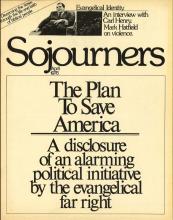We are living in a unique and hopeful time in history, when the dynamic of the church as the continuation of Christ’s body on earth is being rediscovered. And with this rediscovery we are seeing the rekindling of community, spiritual gifts, and social concern.
But these phenomena, however life-giving and exciting, will lead to stagnation if they are not mobilized in the battle of meeting human need -- both spiritual and physical. The key to this battle is behavior. It is not only personal behavior, though, that must be transformed. Sin organizes itself as well into institutions which wind down upon people and oppress them and perpetuate sinful patterns in individuals.
What we need is a change created by Jesus Christ in our institutional behavior equal to the change that can occur in the life of an individual. Jesus offers himself in his church as the corporate model through which we can live out creative alternatives that can break the cycles of wealth and poverty which oppress people.
This is the whole dynamic we are stumbling upon at Voice of Calvary in Mississippi. We have seen three principles that seem to be at the heart of how a local body of Christians can effect institutional behavior in a neighborhood. These principles can be called the three “R’s” of neighborhood development: relocation, reconciliation, and redistribution.
The first is relocation of the body of Christ to the area of need. Someday, Voice of Calvary might be a model for Christian neighborhood development in the poor community. But we have not planned it as such. As I look back, God has developed our work because from the beginning we were committed to living with the people in the neighborhood and, in fact, cut off all the other alternatives. Of course there were times when I wanted to leave Mendenhall -- but I couldn’t. I was trapped.
Read the Full Article

